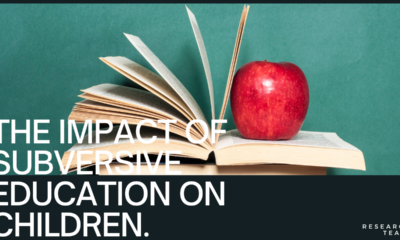Family
Thanksgiving Can Be a Challenging Time for Mental Health. Gratitude Can Help
Thanksgiving can be a trying time, but remembering and giving thanks for things to be thankful for, can work wonders.

With global travesties looming, inflation rising and the state of our collective mental health at a peak of fragility, the importance of kindness and gratitude in procuring our individual and community wellness has never been more critical as we prepare to gather for this Thanksgiving holiday.
Traditionally, research has shown that the societal expectations of a joyous and family-filled holiday season paired together with individual feelings of emotional difficulty can put a strain on a person’s mental health. During the Thanksgiving holiday many people become overwhelmed with feelings of hopelessness, despair, ruminating thoughts, and loneliness. Collaboratively, these feelings during the holidays often contribute to increased reports of depression, anxiety, and other mental health disorders.
While there are many that can look forward to time with loved ones, there are those who are reminded of lost ones and besotted with grief. While some can luxuriate in the plans to see family, there are those whose families are an untethered source of chronic and unprocessed pain. The time surrounding Thanksgiving is further complicated by media news outlets, commercials, and social media timelines that all romanticize the idea of a happy Thanksgiving. However, the gap between holiday expectations and a person’s difficult reality is one that can illuminate a brief but intense period of suffering.
There are many things that we can all do to buffer against the decline of our mental health this Thanksgiving. But more seldomly discussed is the role of gratitude and kindness as a pathway to improved mental health.
Derived from the Latin word “gratus,” meaning pleasing or thankful, gratitude evokes feelings of joy, bliss, optimism, self-satisfaction, improved mood, and even true happiness. Practicing kindness, on the other hand, fosters mutual benefits for both self and others. Specifically, the theory of Positive Psychology notes that kindness promotes empathy, it encourages people to be more altruistic, compassionate, and tolerant, which results in feelings of fulfillment.
The easiest way to practice gratitude is with a gratitude journal. Simply respond to these two prompts daily:
- List three experiences that happened today for which you are grateful.
- List three experiences that happened today that made you laugh or smile.
For beginners, consider starting this prompt by listing one experience and working your way up to three experiences. If feelings of anxiety and sadness feel like barriers to finding things to be grateful for, consider pulling from the basics of your daily life like waking up this morning, breathing the fresh air, getting out of the house, the beautiful trees outside, a tasty meal or a funny video or meme that made you chuckle. By looking back in retrospect and finding experiences that supported your well-being, it encourages you to be more grounded in the present as the day unfolds. When you are more grounded in the present it helps to counteract feelings of depression and anxiety that are rooted in worries of the past and fears of the future.
For those with children, gratitude can also be a family exercise exchanged at dinner time or bedtime and handed down to the next generation as a tool of resilience.
To incorporate more kindness, remember that the opportunity to be kind to oneself and others is never absent. Acts of kindness can happen in myriad ways including, but not limited to, the following:
- Holding the door open for somebody.
- Saying “thank you.”
- Letting someone else go first.
- Asking someone about their day.
- Checking on a friend who is struggling.
- Leaving your mailman a thank you note for the holidays.
- Sending a positive message to a loved one to let them know you are thinking of them.
- Buying flowers for someone who does not expect them and rarely gets them.
- Smiling or saying hello to someone new.
- Buying someone’s coffee.
- Donating to those in need.
During a mentally challenging holiday period like Thanksgiving, engaging in acts that encompass gratitude and kindness can feel burdensome and out of reach. However, individuals are encouraged to scale their incorporation of gratitude and kindness to acts that are smaller and realistically attainable. Fortunately, the benefits of gratitude and kindness are not contingent on grandiosity, they only require an intention to be kind and grateful in exchange for access to joy and fulfillment.
In addition to pursuing gratitude and kindness for your mental health, individuals can also reach out to members of their support system for company and comfort or read self-help books that give directives on how to navigate grief and despair. Another consideration would be to join a support group for individuals who struggle during the holidays, or to seek the consistent support of a mental health professional.
Anyone can reap the benefits of “thanks” and “giving” this holiday season, even if their reality is not picturesque. Making room for your mental health during Thanksgiving is possible if you take small, simple steps that harness gratitude and kindness. While gratitude and kindness are not a cure-all for the difficulties that a person faces during the holiday season, their benefits are invaluable and could truly enhance the landscape of a person’s mental and emotional well-being.
This article was originally published by RealClearScience and made available via RealClearWire.
Millicent Rose, Ed.D., M.A., is Visiting Professor of Clinical Psychology at Pepperdine University’s Graduate School of Education and Psychology.
-

 Education5 days ago
Education5 days agoCHAPTER 11: Critical Race Theory: A Species of the Ideological Thought Genus Marxism
Space Is No Longer the Final Frontier—Reality Is [forthcoming release May 2024] -

 Civilization4 days ago
Civilization4 days agoCHAPTER 12: Seeding Race Wars
Space Is No Longer the Final Frontier—Reality Is [forthcoming release May 2024] -

 Civilization4 days ago
Civilization4 days agoWill Trump flip New York?
-

 Education3 days ago
Education3 days agoTitle IX revision sparks State revolts
-

 Constitution2 days ago
Constitution2 days agoPrecinct Strategy scores again
-

 Clergy5 days ago
Clergy5 days agoHistorical Points Have Their Place, But That Is Not Where Your Faith Is To Stand!
-

 Education4 days ago
Education4 days agoDid the Freemasons, Illuminati, Spiritualists and Mystics establish this country?
-

 Education2 days ago
Education2 days agoThe Road Back to Normalcy Starts Where the Problem Began: College Campuses


